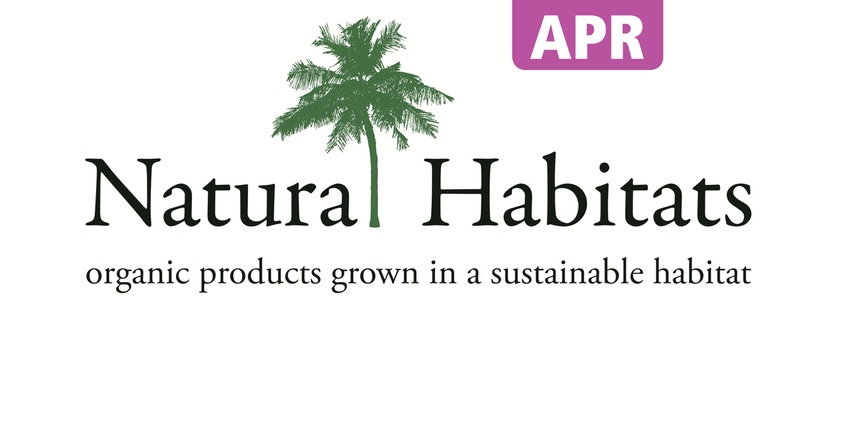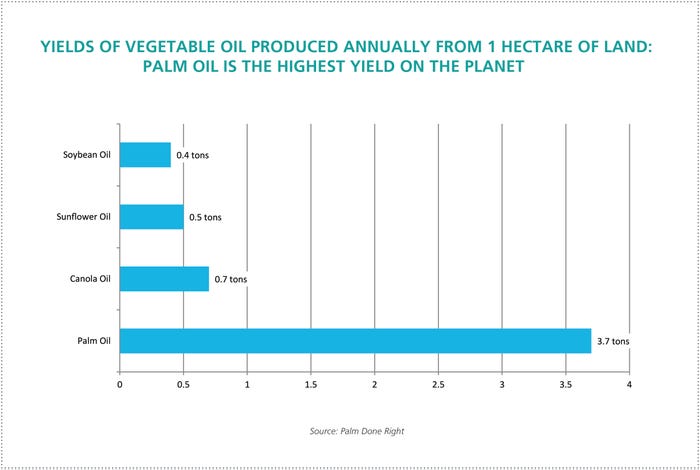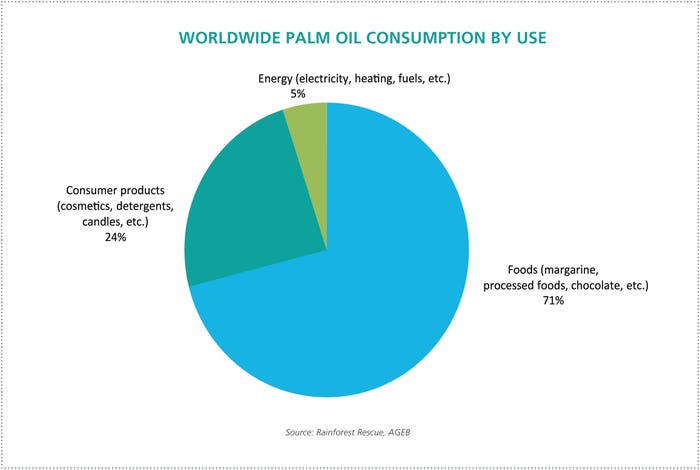
In 2014, NBJ published a story we headlined “The League of Evil Ingredients.” We called out the usual suspects: carrageenan, maltodextrin, soy lecithin and others. We may have left one out: palm oil, a commodity famous for rainforest destruction, land-grabbing, labor exploitation and a ubiquitous presence in unhealthy processed food. Many natural products companies cross it off the ingredient list automatically.
But maybe it was a good choice to leave it out of the “league.”
Maybe palm oil can be healthy, for the body, for the planet, and for the communities living in the shadow of those palms.
Natural Habitats is proving that’s possible.
Converting farms to organic, and building processing plants to convert palm oil into its healthy form with fair trade values, Natural Habitats is changing the trajectory of an entire commodity.
Neil Blomquist, a natural products industry veteran and managing director at Natural Habitats, says the company is as much a mission as a business. “Even though it is a for-profit enterprise, the work that’s being done and the improvement in lives that occurs and the community investment can easily be perceived as philanthropic,” Blomquist says. “People who are following what’s going on with problems in other parts of the world, with how farmers are treated and how workers are treated, see this as a way of really lifting people out of depressed states.”
From the ground up
The process is bold, but in some ways simple.
Natural Habitats finds farmers growing palm for oil and assists them in converting to organic. The process takes time—palms do not produce oil for several years—but the company supports them during the transition.
And when that palm fruit is ready for market, Natural Habitats pays the farmers a premium.
That helps the farmers, but the Natural Habitats model goes much further, bringing a ripple effect that spreads across the community and the ecosystem.
The ecosystem comes first. Much of the drive behind Natural Habitats and its “Palm Done Right” program is based in cleaning up the supply chain. The palm oil trade in Malaysia is ruthless. Clearcutting rainforests for palm plantations destroys habitat for endangered species, the use of herbicides and pesticides has additional impact downstream in waterways choked with silt as the soil is carelessly torn from the ground, turning a rich carbon sink into a massive carbon emmitter.
On farms partnering with Natural Habitats, as the name implies, the habitats stay natural. Agronomists adapt best practices to the landscape. Farmers use green manure and employ cover crops that build healthy soil and attract beneficial insects. Traps made with natural materials control less helpful bugs.
The effect is profound. Native plants come back. The farmer can also multi-crop with plants appropriate to the land. Wildlife returns. The soil is healthy, regenerated.
The benefits for the communities can be just as remarkable.

Changing lives
Natural Habitats supports schools where they work and built a clinic in Ecuador where traveling doctors and nurses offer checkups and consults.
In Sierra Leone, Natural Habitats is constructing a zero-carbon mill that will produce healthy, high-quality oil and provide jobs in a country struggling with extreme poverty.
Like any other business based on fair trade practices, Natural Habitats is designed to work with the communities. More of the money stays with the farmers and producers, creating an economy that may not have existed before.
Indeed, most of Natural Habitats palm oil is sourced in Ecuador, but Blomquist says he expects farmers in Sierra Leone to account for the bulk of the oil within four to five years, much of it on land that had been deforested before the company started working with farmers.
Natural Habitats grew 40 percent last year. Blomquist says that as the company expands its reach it increases the capacity and potential to work with larger organizations. “That’s going to increase as we get this thing to be more visible,” he explains. They are already attracting attention from Greenpeace and the Wildlife Foundation. More partnerships means more benefits.
Those ripples of benefit don’t end when the oil leaves the communities where it is produced.
When the organic palm oil reaches more developed countries, companies can offer consumers healthy, organic products with the transparency promise that the ingredients were sourced fairly and sustainably.
That made the difference for Quinn’s Snacks.
“Things that are happening in the palm oil industry like deforestation, exploitation, pollution, and habitat devastation do not align with our mission to use ingredients that are better for us and the environment,” says company co-founder Kristy Quinn. She calls Natural Habitats and Palm Done Right, “a new kind of food system where people care about what is in their supply chain and where it came from and want to leave the industry and the world better than the way they found it.”
“That’s integrity and change we want to be a part of,” she adds.
Other companies working with Natural Habitats include Dr. Bronner’s and Nutiva. Like Quinn’s, they are all on board with the mission. “I think in general the customers who have signed up are really into it and want to promote it and not just have it there as a defense,” Blomquist says.
Companies like Quinn’s can also point to health benefits. Palm oil grown the right way and processed the right way, at lower temperatures, can have notable health benefits. Red palm oil boasts high concentrations of carotenoids and other healthy benefits. It can replace problem ingredients in soaps and other personal care products.
Palm oils can also be a high-yield crop for a hungry world. Palm produces seven to ten times more oil per acre than soybeans and sunflowers.
Natural Habitats is proving that palm oil is far from an evil ingredient. The problem has always been in the supply chain story. The company is now retelling that story, improving lives and the environment in every chapter.

From Nutrition Business Journal's 2017 Awards issue. To learn about all the winners, get the full issue for free in the NBJ store.
About the Author(s)
You May Also Like





